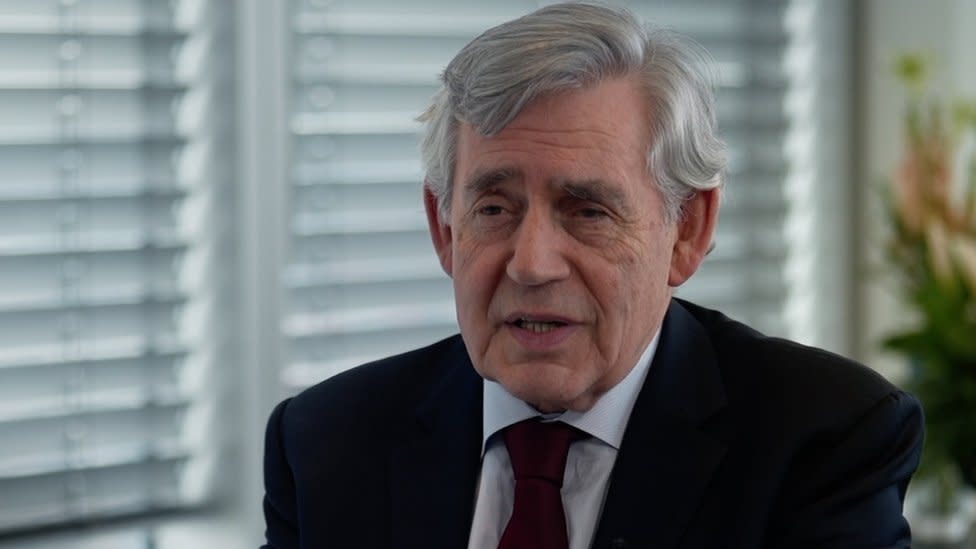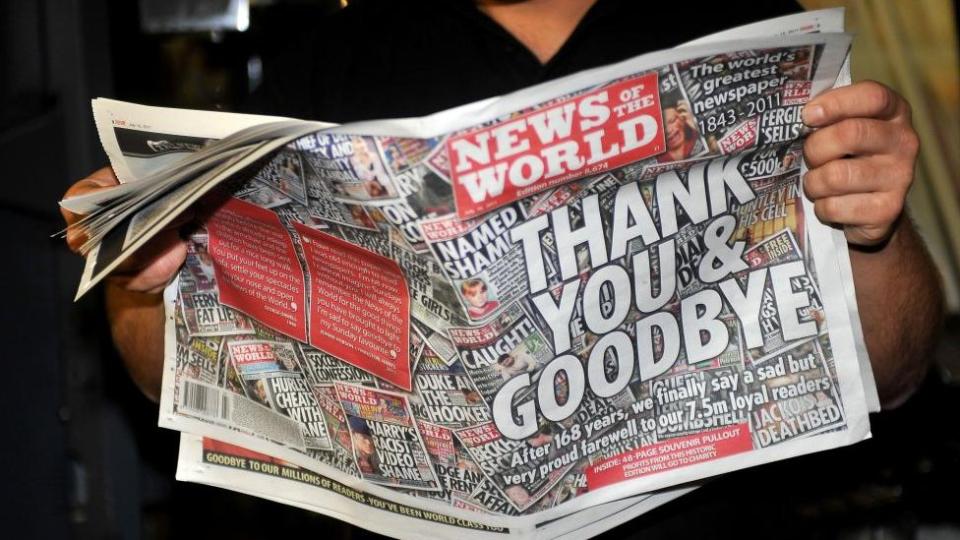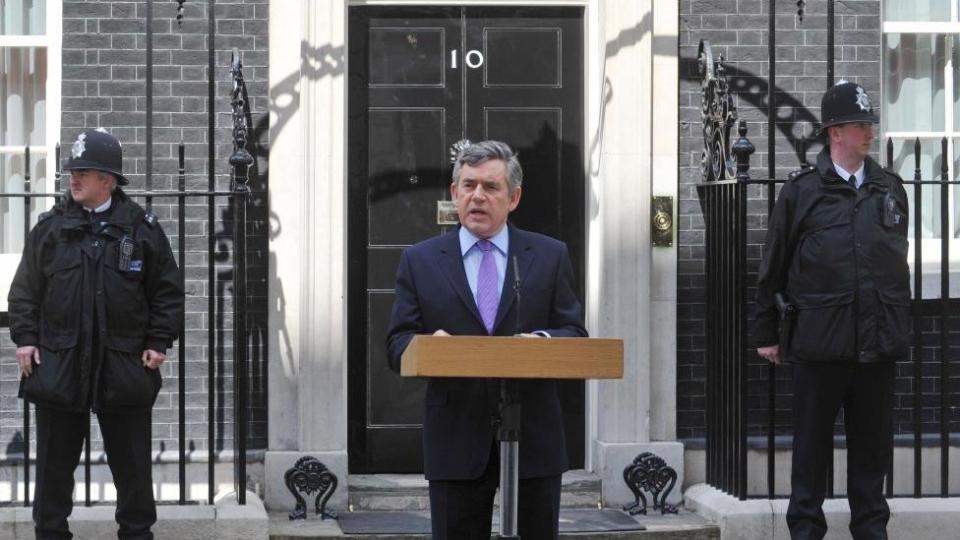Gordon Brown: Police should investigate News UK phone hacking 'cover up'

- Oops!Something went wrong.Please try again later.
Gordon Brown has called for police to investigate whether the publisher of the Sun and News of the World covered up phone hacking evidence.
The former prime minister told the BBC that civil court documents show News UK deleted emails to stop police seeing them.
He also believes his phone may have been hacked while in No 10 and could now take legal action.
News UK said Mr Brown's allegations were "unfounded and wrong".
In 2015, prosecutors said there was no evidence of corporate wrongdoing.
However, Mr Brown said that decision was based on an "incomplete picture" of the case against News UK, previously known as News Group Newspapers.
He said: "What we have is new evidence. What we now know was not available at the time, perhaps not even available to the police.
"What is coming out is the extent of the interference in people's civil liberties, the extent to which the organisation tried to cover up."
He said he was speaking out on behalf of "ordinary families" targeted by newspapers "at the moment of greatest difficulty for them - grief, tragedy, accidents, murders".
Victims of phone hacking include the murdered teenager Milly Dowler and families bereaved by the 7 July 2005 terror attacks in London.
Mr Brown continued: "The intrusion into their private lives at the time of grief was so extensive, whether it be by phone hacking, or by using private investigators or by investigating their family life and the relatives of people around them."
The police investigation into the company was brought to a halt in 2015 after the convictions of senior journalists including Andy Coulson, a former editor of the News of the World.

The company had accepted journalists at the tabloid were involved in wrong-doing and closed it down in 2011.
It has paid damages to hundreds of News of the World phone hacking victims, and has also settled cases brought by those targeted by the Sun, without admitting any liability.
More than 40 people are currently suing News UK for hacking their phones or unlawfully obtaining their private information.
The complex case is likely to go to trial next year but evidence is already being disclosed to the claimants' lawyers.
A key question in the trial is likely to be why the company deleted more than 30 million emails in 2010 and 2011, when it knew it faced a police investigation over phone hacking.
Nine million emails, detailing important periods during the phone hacking saga, were "irretrievably lost", according to court documents.
The reasons for the email deletion policy are at the centre of claims the firm was involved in a corporate cover-up which went beyond the wrong-doing of individual reporters and private investigators.
News UK has always insisted it was clearing out old computer servers, but claimants say it was deleting evidence at the time the police investigation was expanding.
They have accused the company in court filings of inventing a false "security threat" to provide another reason why emails needed to be deleted.
Court documents filed by the claimants suggest senior figures at the News UK believed an insider sympathetic to the Labour Party had leaked emails belonging to chief executive Rebekah Brooks.

They believed these had been passed to a third party, who had then met and discussed them with Gordon Brown.
The court documents suggest the company decided to delete Mrs Brooks's emails to prevent further leaks.
On Wednesday, Mr Brown discussed this claim for the first time, describing it as an "an attempt to blame someone else... when, of course, they themselves were guilty of destroying evidence".
He denied ever being passed information relating to Mrs Brooks, adding: "The police should never have accepted their explanation."
Mr Brown has never taken legal action against News UK but revealed he is now considering it.
He said it was possible that his phone was hacked between 2005 and 2007 when he was chancellor, and for the three years he was prime minister, before losing the 2010 election.
Mr Brown said he had a personal mobile phone at the time, and believes his voicemail messages may have been accessed.
He continued: "If a prime minister was having his phone hacked by News Group, then that is a very serious matter.
"And we need to get all the evidence about what happened, what didn't happen, what was happening at their headquarters.
"I think that is all still to come out. And that's why although time has passed, we must not allow this to happen again because of a failure to investigate what happened in the past."
In response, News UK said Mr Brown's allegations related to events from over a decade ago which are the subject of current legal proceedings in the civil courts.
A spokesperson added: "There is absolutely no evidence to support the assertion that Mr Brown's voicemails were intercepted and this is denied."
The company has also denied in court documents it deleted millions of emails because they were "potentially incriminating", pointing out that many had been backed up, recovered, and made available to the police.
The threats to the security of Rebekah Brooks's emails were "believed to be genuine and were not devised as part of an alleged 'cover-up'", the court documents said.

